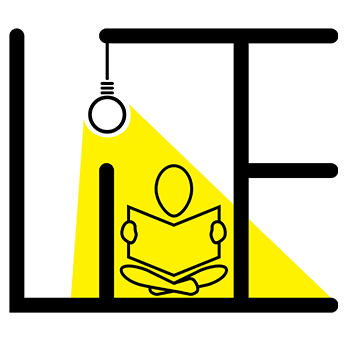The power of the community approach to running workshops
Based on the writings of M. Scott Peck
Being vulnerable during a workshop I recently directed enabled the participants to achieve the unimaginable. I arrived hoping I knew it all but recognised that I fell sorely short of the mark. The task ahead of us would require our combined knowledge, experience and creativity. If I didn’t create an environment that would bring out the best in the workshop participants, I knew we were doomed. Through the process of listening, emptying myself and allowing the teams space, we all experienced the powerful emancipation of becoming a community. And together we achieved the impossible.
Borne out of a sense of community, our combined thoughts, experience and creativity is powerful! M. Scott Peck, eminent psychiatrist and author, ventured a comprehensive take on community that is mind-blowing. When we stumble upon true community, nothing is impossible to achieve. It starts with recognising that we need one another, and with vulnerability. Not one of us is the expert, leader or decision-maker. Rather, as we acknowledge our weakness and interdependence, genuine community is possible. Excessive organisation is antithetical to community. And so, letting the process happen is essential to achieving our workshop goals. Peck asserts that the most necessary key to surpassing our limitations is appreciating our differences. “Begin to appreciate each other’s gifts, and you begin to appreciate your own limitations.” (Peck, p. 65).
As the participants in a workshop become thoughtful about themselves, they also learn to become increasingly thoughtful about the group. “How are we doing?” and, “Are we still on target?” What a genuine community does, because it is a contemplative body, is recognize its ill health when it occurs and quickly takes appropriate action to heal itself. When people are free to be themselves, vulnerability in community snowballs. Once its members become vulnerable and find themselves being valued and appreciated, they become more and more vulnerable. Community is a safe place because you are free to be you – and because you are free to discard defences, masks and disguises. You are free to become your whole self. “As long as we look out at each other only through the masks of our composure, we are looking through hard eyes. But as the masks drop…we truly start to respect each other as fellow human beings.” (Peck, p. 69).
In experimenting with disarming themselves, the members of a true community experientially discover the rules of peace-making and learn its virtues. It is not always easy, but by the time they reach community, the members have learned how to give up cliques and factions. They have learned how to listen to each other and how not to reject each other. A community is a group of all leaders. They know that they have won something together, collectively discovered something of value, that they are “onto something.” They are no longer competitive, but inclusive. The change of atmosphere is palpable. A new quietness descends on the group. There is a tranquil sense of pulling together, not striving or competing to outdo one another. The chaos that was originally a hallmark is over and they can work together to achieve their goals in a spirit of comradeship. The bridge between chaos and community is emptiness. The final stage of becoming a community is to genuinely consider the opinions and success of the members. And you need “Community-building first, problem-solving second.” (Peck, p. 104).
The power of the community approach to workshops was evident to all of us in the Nagpur workshop. From the outset, I took a back seat. I was there as a consultant, along with a handful of linguists. Our task was to provide the guidance and atmosphere through which primers could be produced. A unique set of books was required for each of the six language groups. We planned to develop up to six books for each language within a month. We had audacious goals! I was hesitant to mention our goals at the outset – and so as to keep the participants from feeling overwhelmed, I rather gave them bite-sized chunks week by week. I guess they didn’t realise where we were headed until later, but that was okay as they were focussed on each task at hand. Armed with the big picture, and knowing what Peck maintains about community, I felt we were off to a good start. There were no pretences at anyone being the expert or the leader. Everyone was an expert. They were all leaders. They are the speakers of their language; they are the artists and the story-tellers. And these were to be their books.
The linguists demonstrated to the group how each lesson should be constructed in our first book. This was to be a Transition Primer. The audience for this book would be mother tongue speaker who are literate in the state language. This means that they are already readers of the state language and know the writing system (orthography) that is used in the state. This same orthography had previously been adapted to suit the sound system of each language represented. Each team now had a ‘trial orthography’ that they were going to implement in the construction of the primers. The purpose of this particular primer was to help mother tongue speakers quickly learn how to read their own language using the orthography of the state. This is a great booklet to help the more educated members of the community to become readers of the mother tongue. This group of new readers can be a great asset as they promote, assist and participate in a community-owned literacy initiative.
There was an overwhelming sense that this was being done for their people. The participants took ownership of the work required of them. A sense of pride and achievement further enthused them, enabling many extra hours of hard work and dedication by all. Teams were not threatened when their work was scrutinised, but rather welcomed the input as a means of improving their hard work. Making of mistakes was embraced and even applauded for three reasons: firstly, to conquer the fear of making mistakes; secondly, so much is learned through trying and making mistakes; and thirdly, in the interests of promoting a sense of community, it was essential for all the members to feel comfortable with their contributions and efforts – both successes and failures. We experienced the profound benefits of pulling together towards a common goal.
Within a short space of time, the teams got the knack of it and were producing lessons that would clearly and systematically teach the student to read and write their own language. The atmosphere was charged with enthusiasm and anticipation. Team members had the confidence to ask questions, make suggestions and raise concerns. They were able to grapple with the technical issues of producing original teaching instruction materials in a newly-adapted orthography. This requires creativity, original thought, scientific method, pedagogical insight and team-work. The power of collaboration became a powerful tool in the hands of the participants. When some in the group failed to understand an issue or requirement, another member was able to explain it to the rest. This freed even the quieter members, as they felt comfortable contributing to the group and clarifying technicalities.
Collaborative learning is a powerful learning tool that takes place when participants are valued and can contribute in a safe and learner-centred environment. Participants are involved in production, decision-making and discussion step by step, which helps them to build on what they already know, thereby building confidence and a sense of ownership of their learning and outcomes. Group work is done in a respectful way and participants are responsible to all the members of the group, to ensure that everyone is successful in learning, acquiring and applying new skills. This is when real learning takes place. Collaborative learning was the springboard for something very special that happened during this workshop, where a sense of community was experienced by all. We produced our goals and exceeded our expectations!
References
Peck, M. S. (1990). The Different Drum: Community Making and Peace. NY: Touchstone.

